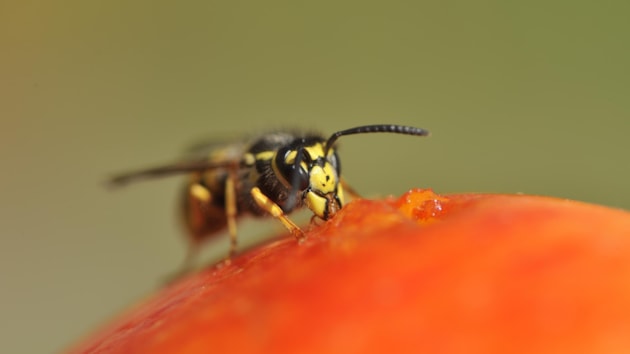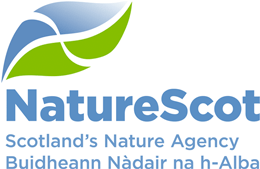10 October, 2024
Gardeners urged to help pollinators this autumn by taking a break

NatureScot is urging gardeners to take a break this autumn and leave their gardens alone to help struggling pollinators over the winter.
In fact, taking a rest from gardening over autumn and winter is probably even more beneficial for bees and other pollinators than planting pollinator-friendly flowers for spring and summer.
Sarah Smythe, NatureScot Biodiversity Adviser, said:
“This is a double win: it’s good news for gardeners, allowing you to swap your winter secateurs and spade for a cup of tea and a seed catalogue, while you’re also helping pollinators and doing your bit for nature.
“The most important thing you can do to help pollinators is increase the safe places where they can survive over the winter – and that means leaving your garden a bit messy over the winter!”
With dropping temperatures and a lack of food, pollinators use various strategies to survive. Here are some tips to make sure pollinators thrive:
- It helps pollinators if you leave areas of stones, branches and twigs of different sizes piled up with leaves and soil for a bit of insulation. This may also provide shelter for hungry toads – which will be welcome when the new plants (and slugs) start to get moving in spring. These stones and twigs may be removed in late spring when anything sheltering has had the chance to move on.
- Use leaves as a mulch instead of tidying them away, providing safe spaces for pollinators under the leaves.
- An upright trunk can provide somewhere for pollinators to burrow into and shelter in dry cavities.
- Leave a patch of long grass – an awkward patch out of sight is perfect for pollinators’ winter quarters.
- Some of our native bees overwinter individually as pupae, like some butterfly species. If they find a good spot, they will emerge when the weather warms up and there are flowers to forage on. If you notice a small hole in the ground during the summer with bees around, it is likely to be a mining bee nest, so try not to disturb it throughout the winter.
- Many woody perennials can be left until spring and even annuals will provide soil cover as well as shelter, helping preserve nutrients in the soil as well as sheltering pollinators. If cutting back is necessary, try to cut on rotation, leaving half of the stems one year, then cutting them back the following year, leaving those cut the previous year.
Bug hotels have become very popular in recent years, but Sarah doesn’t recommend them. “Natural shelter spaces are usually much more effective, as bug hotels mimic the natural shelter spaces for insects but need to be maintained to make sure they’re not providing a hub for predators and disease. It’s far better to just leave a range of long woody stems. These will naturally decompose, ensuring diseases will not be passed on. You can then also enjoy wonderful dewy cobwebs or frost dusting the branches, while deep in the stems, a range of insects can shelter.”
Find more tips on how to garden to nature on our Make Space for Nature web page.
Contact information
- Name
- NatureScot Media
- Telephone
- 0131 316 2655
- media@nature.scot
NatureScot is Scotland's nature agency. We work to enhance our natural environment in Scotland and inspire everyone to care more about it. Our priority is a nature-rich future for Scotland and an effective response to the climate emergency. For more information, visit our website at www.nature.scot or follow us on X at https://x.com/NatureScot
’S e NatureScot buidheann nàdair na h-Alba. Bidh sinn a’ neartachadh àrainneachd na h-Alba agus a’ brosnachadh dhaoine gu barrachd suim a chur ann an nàdar. Tha e mar phrìomhachas againn gum bi nàdar na h-Alba beairteach agus gun dèilig sinn gu h-èifeachdach le èiginn na gnàth-shìde. Tha an tuilleadh fiosrachaidh aig www.nature.scot no air X aig https://x.com/NatureScot



